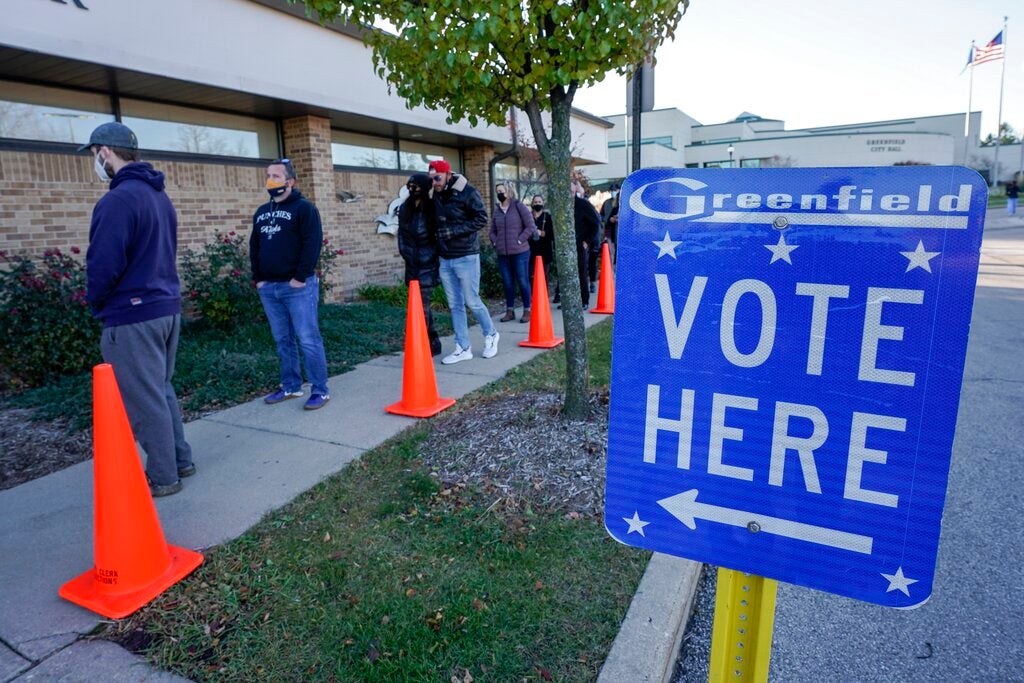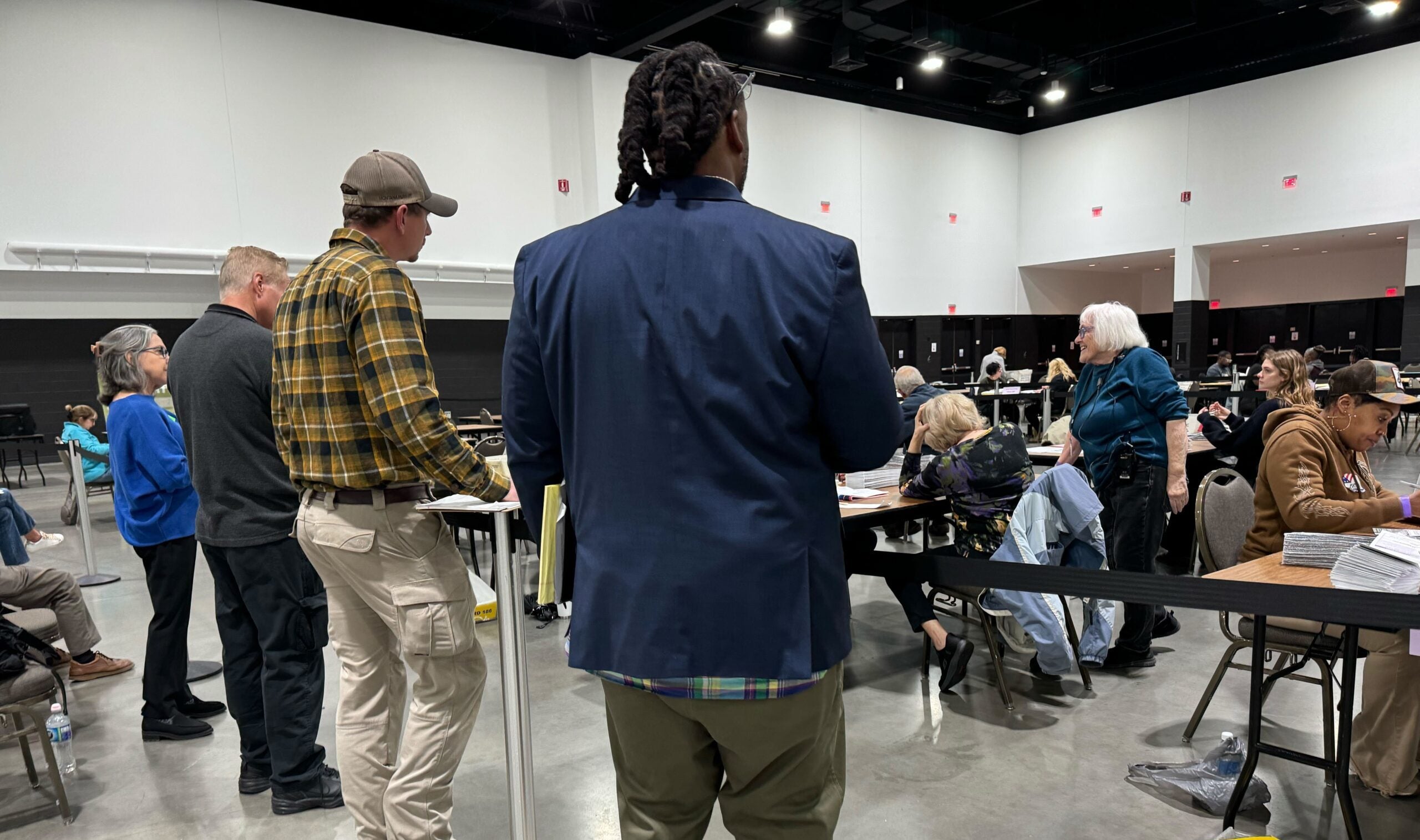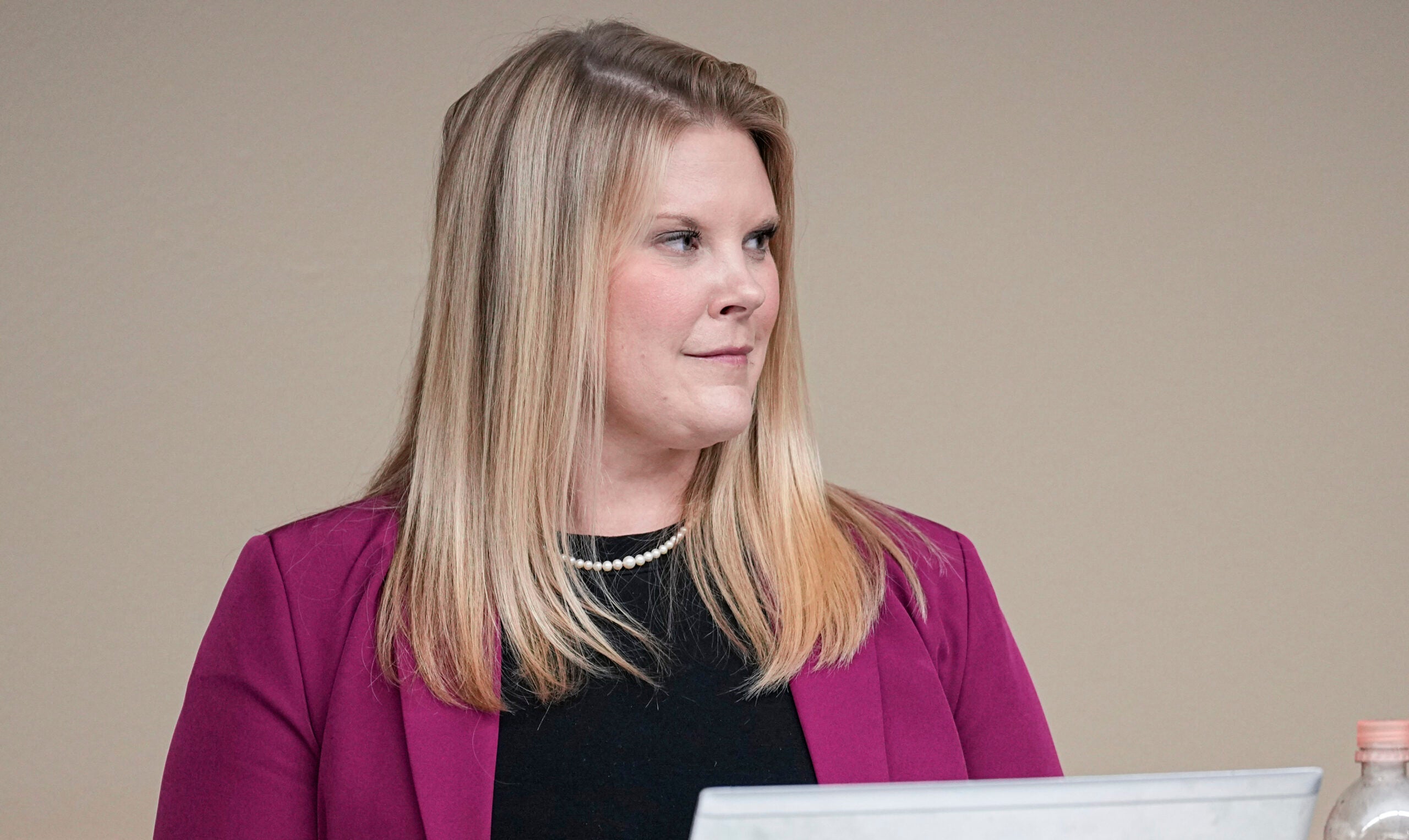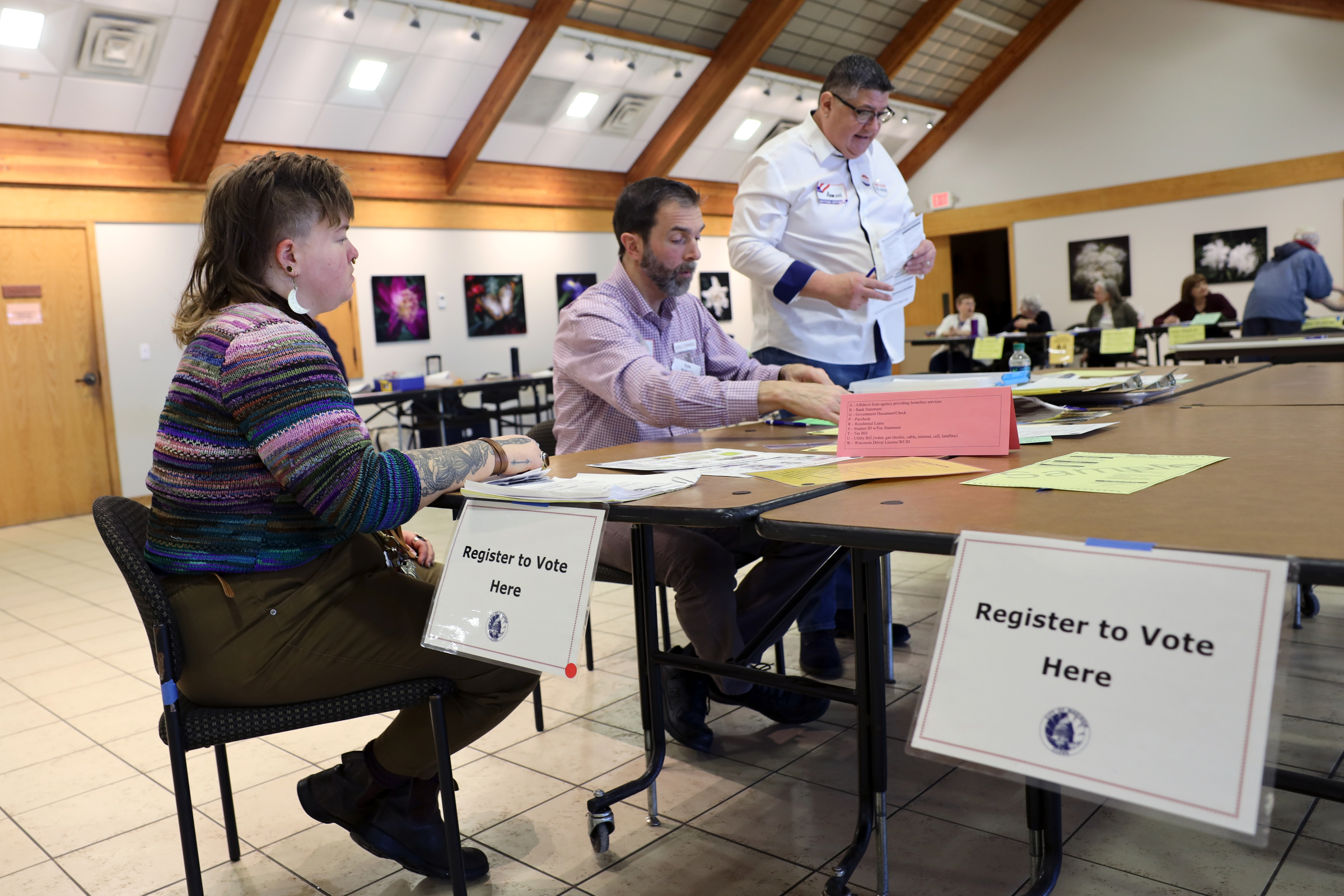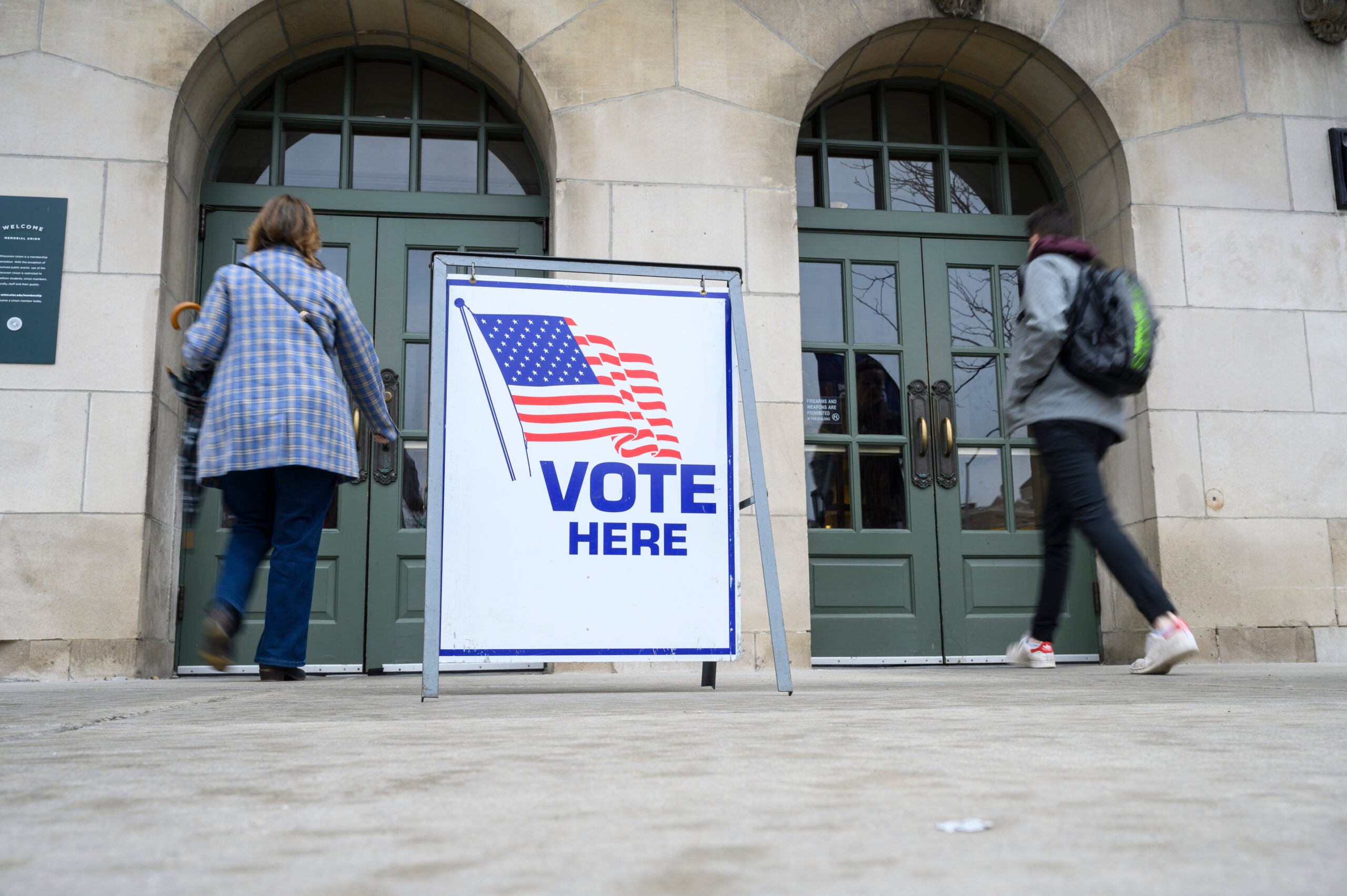The Wisconsin Elections Commission will ask the Republican-controlled State Legislature for 10 new staff members dedicated to responding to a steep increase in complaints and records requests in the wake of false claims that the 2020 election was stolen from former President Donald Trump.
By a unanimous vote, the bipartisan elections commission board approved a request for $1.34 million in additional state funding to hire an “elections inspector general” who would supervise 10 new staff members. The request is part of the WEC’s proposed 2023-25 budget request.
“The program will increase the agency’s ability to research public or legislative inquiries — especially those alleging unlawful or non-compliant behavior — in a more timely and effective manner,” according to an outline in the WEC’s meeting materials. “The Election Inspector General program will also promote best practices designed to increase accuracy of and confidence in election results.”
Stay informed on the latest news
Sign up for WPR’s email newsletter.
The WEC request cited an 800 percent increase in the number of public records requests since 2016, and a more than 233 percent increase in the number of formal elections complaints.
During a Wednesday meeting, Wisconsin Elections Commission Administrator Meagan Wolfe clarified that the inspector general office “would not be about dwelling in the past of giving credence to claims that threaten the credibility of Wisconsin’s accurate and secure elections.”
Instead, she said it would address backlogs of requests for various election related information.
“Current staffing levels are inadequate to handle the post 2020 volume,” said Wolfe. “The WEC must adapt to meet the growing needs of our citizenry.”
Before approving the proposal, commission members amended it to specify that the inspector general would be hired by the WEC’s administrator. The original wording stated the individual would be hired by the six-member board.
Commissioner Mark Thomsen, a Democratic appointee to the board, said: “Why do the six of us need an ego show over who we want to be running this inspector general, as if the administrator doesn’t run it? I mean, you can’t have two heads of this agency.”
Commissioner Bob Spindell, a Republican appointee, said he preferred keeping the position “independent” of the administrator to avoid retribution if an inspector general points out problems within the WEC.
Commission Chair Don Millis, a Republican appointee, told other members even if the WEC administrator hires the inspector general, the administrator answers to the board.
“That would still give the commission some control,” said Millis.
The commission’s pitch for additional staff is likely to face opposition from Republican lawmakers in Wisconsin amid allegations the agency encouraged local election workers to disregard state law during the 2020 presidential election.
Republican gubernatorial candidate Tim Michels has called for eliminating the Wisconsin Elections Commission entirely and replacing it with a board of members from Wisconsin Congressional districts, which are mostly represented by Republicans.
During the Republican Party of Wisconsin’s state convention in May, delegates passed a resolution calling on the legislature to disband the commission and let state lawmakers take over election certification in the future.
Republican U.S. Sen. Ron Johnson voiced concerns about the commission and former board chair Dean Knudson to Assembly Speaker Robin Vos, R-Rochester, in May. Knudson, a former Republican state lawmaker, resigned from the commission on May 25 citing the pressure.
The GOP opposition to the WEC comes seven years after Republican state lawmakers created the Wisconsin Elections Commission in 2015 to replace the state’s nonpartisan Government Accountability Board. At the time, lawmakers accused the GAB of favoring Democrats and expressed anger with the agency for its involvement in an investigation of conservative groups and former Republican Gov. Scott Walker’s campaign.
State Senator Kathy Bernier, R-Chippewa Falls, chairs that chamber’s Committee on Elections. She said WEC members have “not been too communicative” with members of the State Legislature since its formation.
“The fact of the matter is, we need to be eyes and ears about the complaints, where they’re going, suggestions that they may have in regard to law changes that would be a little more up to date and reactive,” said Bernier.
One of the 10 staff positions recommended by the WEC would be a dedicated liaison to the Legislature.
“So, if the Legislature has a little more opportunity to be a part of the process with the commission and the oversight process, then they would be less eager to criticize the commission and the staff,” said Bernier.
In a statement sent to WPR, Gov. Tony Evers’ Communications Director Britt Cudaback blamed state Republicans and allies for “repeatedly and intentionally” legitimizing disinformation about elections, requiring the WEC to seek additional staff.
“Gov. Evers welcomes additional efforts to combat Republican misinformation, continue bolstering election security, and ensure every eligible voter can cast their ballot in Wisconsin, and he looks forward to reviewing the Elections Commission’s request as part of the biennial budget process,” said Cudaback.
The election commission’s budget request now goes to the Department of Administration’s State Budget Office. Wisconsin’s next governor will then decide whether to include the proposal in their 2023-25 state budget proposal. If included in the next state budget, the Republican-controlled Joint Finance Committee would have a chance to rework or remove the Office of Election Inspector General from the state budget, with the governor having the final say via a signature or line item veto.
Wisconsin Public Radio, © Copyright 2025, Board of Regents of the University of Wisconsin System and Wisconsin Educational Communications Board.

